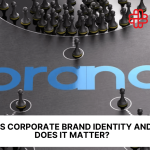A strong, unique brand image is essential for any organisation to differentiate itself from others in the market. This differentiation also helps build good relationships with customers. If they feel that they share the same values with the brand, they will be loyal and more attracted to it.
This Brand Management & Corporate Identity course will provide practical tools and skills to manage corporate identity and product or service brands strategically.
Upon completion of this course, participants will be able to:
- Develop Strategic support for the brand from all stakeholders, including executives, employees, customers, influencers and the media
- Use the key elements of branding to create or refresh a brand
- Explain the benefit of branding, how to create a positive identity, and how to repair a damaged reputation
- Explain how brand performance can be monitored over time and recommend appropriate action when needed
- Describe how to determine brand values and select appropriate market positions
- Discuss why brands are valuable assets and how to manage their creation and development carefully
This course is intended for
- Marketing managers, directors and executive
- PR managers and executives
- Business Owners
- Entrepreneurs
- Communication managers and directors
- Brand manager
- Product Manager
This highly interactive course combines presentations, expert lectures, discussions, case studies and interactive activities such as quizzes, brand design reviewing and Q&A sessions.
Participants are encouraged to reflect based on their own experiences and culture.
Day 5 of each course is reserved for a Q&A session, which may occur off-site. For 10-day courses, this also applies to day 10
Section 1: Introduction: Why Do Brands Matter?
- What is a brand? brand vs product comparison
- The Importance of branding and what can be branded
- What should a brand include?
- Brand Management and Brand Equity
- How does a brand add value to an organisation?
Section 2: Creating an Effective Brand
- Brand's identity elements, six key factors to consider, gambits to make the brand identity memorable
- Key criteria for a branding strategy
- linking the brand to the organisation’s mission, vision, values and purpose
- Main features for strong brands
- Connecting the brand to the past, present and future
Section 3: Brand Marketing
- Succeed in the new media, social media, advertisement and promotional activities
- Licensing
- Events sponsoring
- Running launching events for the brand while ensuring consistency
- Creating relationships between existing and new brand associations
- Creating branding communication plans for different audiences
- Developing brand financials, a brand as an asset
- The relationship between brands and channels, geographic factors, brand alliances and co-branding
Section 4: Protecting Brand Equity Over Time
- Monitoring customer experience and perception of the brand and what is being said in the media about the brand
- Consider introducing new products to the brand; what are the pros and cons of brand extensions
- Knowing when to refresh the brand to reflect changing business strategy and environment
- Introducing new market segments, introducing new regional/continental markets, international considerations, building global brand equity
- Prospering in the New Media, advertising channels, promotional activities, media relations, sponsoring events, designing marketing communications
Section 5: Developing support for the brand
- Recruiting brand ambassadors (Celebrities, employees, fans and bloggers)
- Finding a brand champion from the leadership team that resonates with customers and potential customers
- Logos, symbols, characters, slogans and packaging
- Developing an appropriate strategy for products, channel strategy, pricing strategy and value engineering
- Proving the brand’s worth to shareholders using the international standard ISO 10668
Upon successful completion of this training course, delegates will be awarded a Holistique Training Certificate of Completion. For those who attend and complete the online training course, a Holistique Training e-Certificate will be provided.
Holistique Training Certificates are accredited by the British Assessment Council (BAC) and The CPD Certification Service (CPD), and are certified under ISO 9001, ISO 21001, and ISO 29993 standards.
CPD credits for this course are granted by our Certificates and will be reflected on the Holistique Training Certificate of Completion. In accordance with the standards of The CPD Certification Service, one CPD credit is awarded per hour of course attendance. A maximum of 50 CPD credits can be claimed for any single course we currently offer.
- Course Code IND11-102
- Course Format Classroom, Online,
- Duration 5 days














